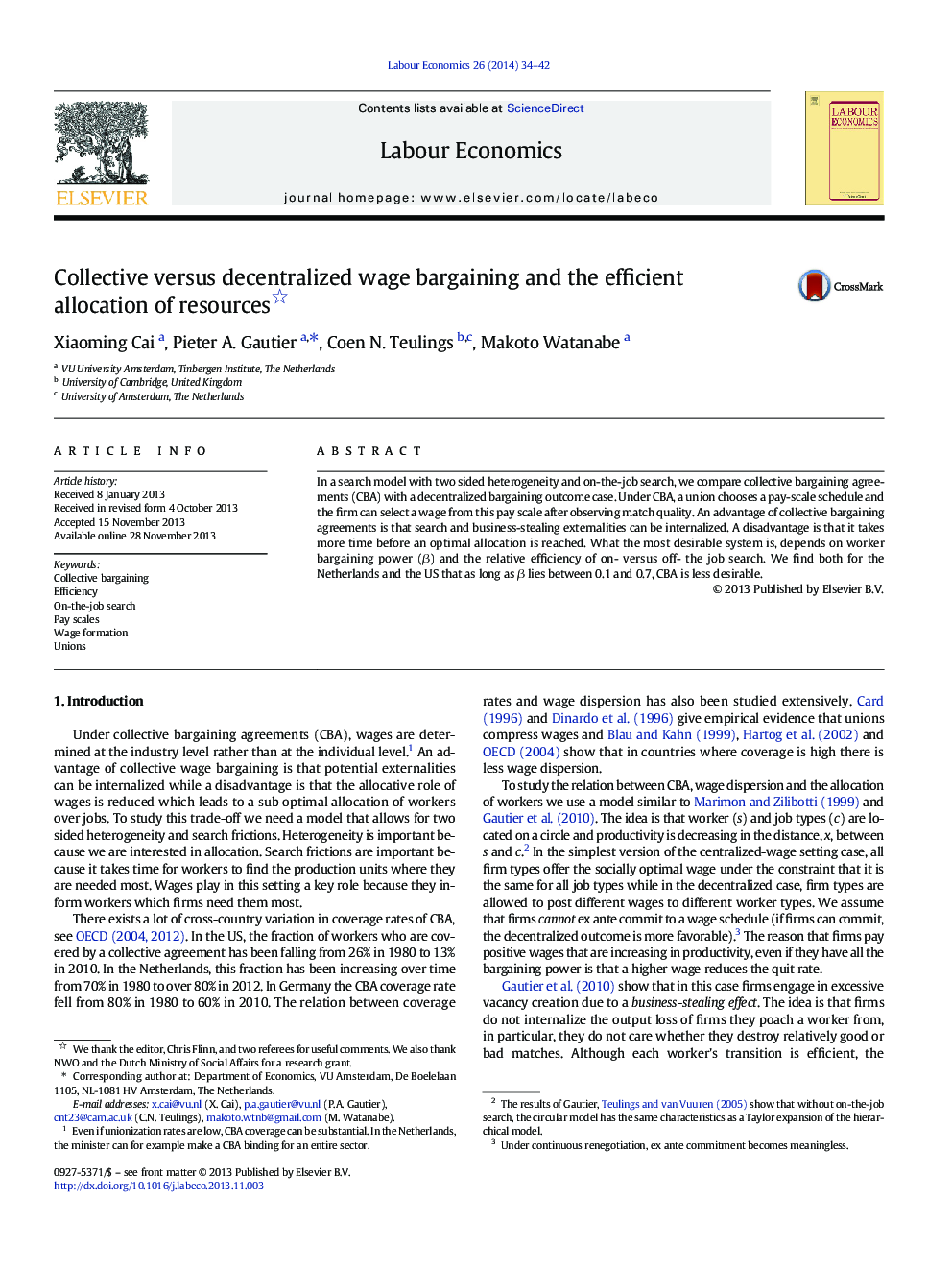| Article ID | Journal | Published Year | Pages | File Type |
|---|---|---|---|---|
| 7372142 | Labour Economics | 2014 | 9 Pages |
Abstract
In a search model with two sided heterogeneity and on-the-job search, we compare collective bargaining agreements (CBA) with a decentralized bargaining outcome case. Under CBA, a union chooses a pay-scale schedule and the firm can select a wage from this pay scale after observing match quality. An advantage of collective bargaining agreements is that search and business-stealing externalities can be internalized. A disadvantage is that it takes more time before an optimal allocation is reached. What the most desirable system is, depends on worker bargaining power (β) and the relative efficiency of on- versus off- the job search. We find both for the Netherlands and the US that as long as β lies between 0.1 and 0.7, CBA is less desirable.
Related Topics
Social Sciences and Humanities
Economics, Econometrics and Finance
Economics and Econometrics
Authors
Xiaoming Cai, Pieter A. Gautier, Coen N. Teulings, Makoto Watanabe,
